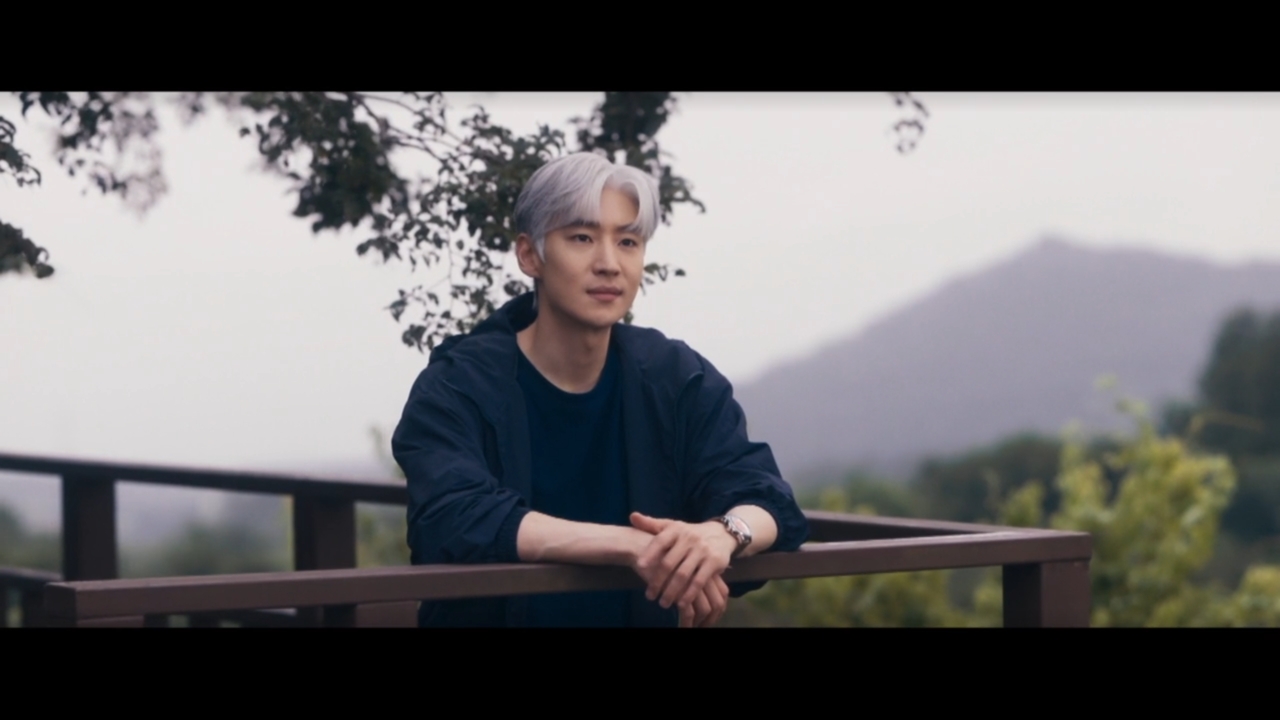
The Art of Negotiation- Episodes 7-8
Secrets, Resorts, and a Standoff in Jeju
Episode 7 of The Art of Negotiation kicks off with a glimpse into Joo-no’s past—and it’s messy. A flashback shows him being grilled over insider trading allegations. The case? His brother owned stock in a company Joo-no approved for acquisition. Suspicious? Definitely. But with the key suspect deceased, the investigation was dropped, and Joo-no walked away cleared—at least on paper.

A Loan, a Deadline, and a Legal Wall
Back in the present, the real crisis takes shape. Chairman Song Jae-sik is sitting on a ticking time bomb: a ₩50 billion loan, due in 29 days, secured against his own Sanin stock. His plan? Sell the shares. Simple—until Joo-no points out a legal hitch. Major shareholders must disclose stock sales a month in advance. Which means: he can’t sell.
Even worse, if word gets out that Sanin’s CEO is offloading shares under pressure, it could send the market into panic. A sell-off would tank the stock—and gift-wrap the company for SAMOEL’s takeover.
CFO Ha Tae-su suggests patching the hole with another loan. But Joo-no digs deeper and asks the real question: Where did the ₩50 billion go? Jae-sik casually admits—he bought a resort.

Destination: Jeju
A resort? That’s enough for Joo-no to start digging. The property is in Jeju, but to avoid raising suspicions back at HQ, he and the team travel using Joo-no’s personal funds.
Min-jung, Jin-su, and Soon-young arrive first and get a surprise dinner guest: a glamorous woman who’s been living in the resort’s most expensive suite for over a year. She takes a liking to Min-jung and inserts herself into their evening with ease.
Meanwhile, Joo-no meets with Director Park, the team’s go-to research ally, and uncovers a key detail—the resort doesn’t belong to Sanin. It belongs to Jae-sik’s daughter.
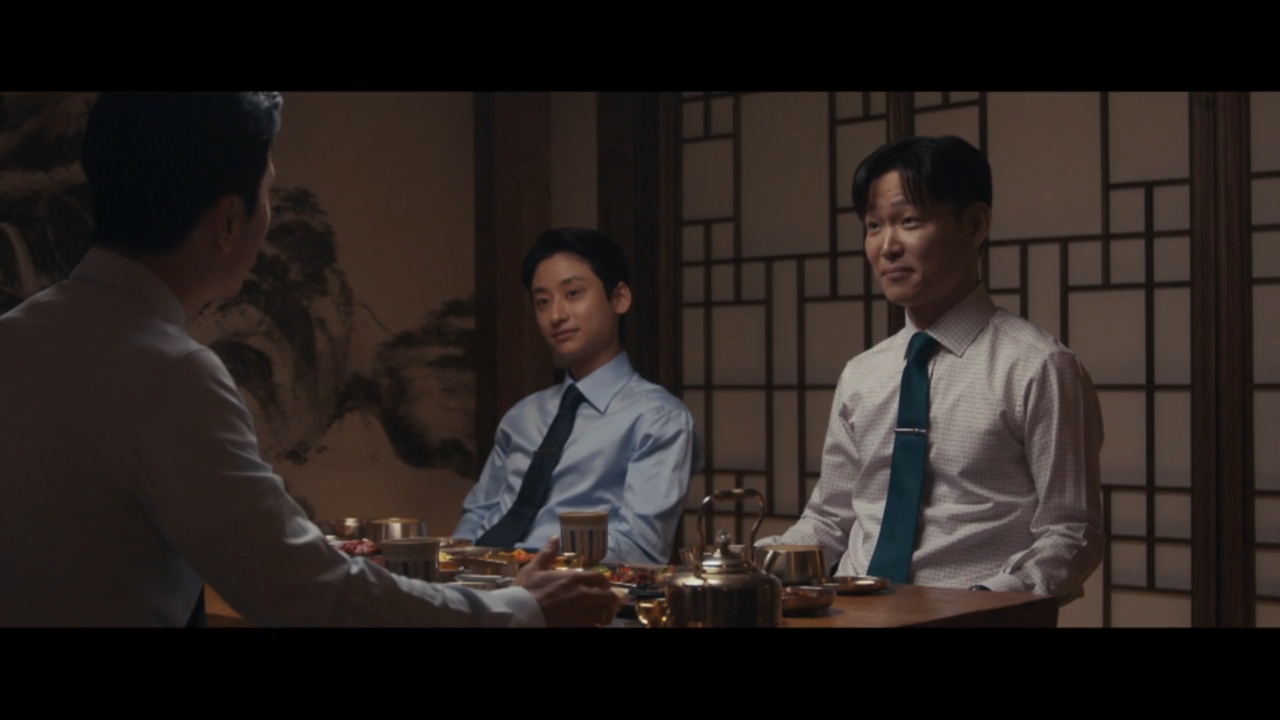
Enter Song Ji-o
Joo-no heads to Jeju and walks in on the dinner party, where the mysterious guest finally reveals herself: Song Ji-o, CEO of DADO Resort and Jae-sik’s only daughter. Ji-o takes Joo-no on a tour, coolly showcasing her slice of paradise.
But the numbers don’t lie—the resort is struggling. When Joo-no suggests selling it to help cover her father’s debt and protect Sanin, Ji-o’s mood shifts fast. Her answer? Absolutely not.
The episode ends there, with a new standoff—this time, not between boardroom rivals, but between a father’s fixer and a daughter unwilling to give up her dream.
A Resort, a Secret, and a Seat at the Table
Episode 8 of The Art of Negotiation picks up in the middle of a financial chess match. With the clock ticking and the company on the line, Tae-su continues his talks with SAMOEL. Their opening offer? A brutal 18% interest rate. Tae-su tries to smooth it down to 15%, but Chairman Jae-sik isn’t having it—he demands 10% or nothing.
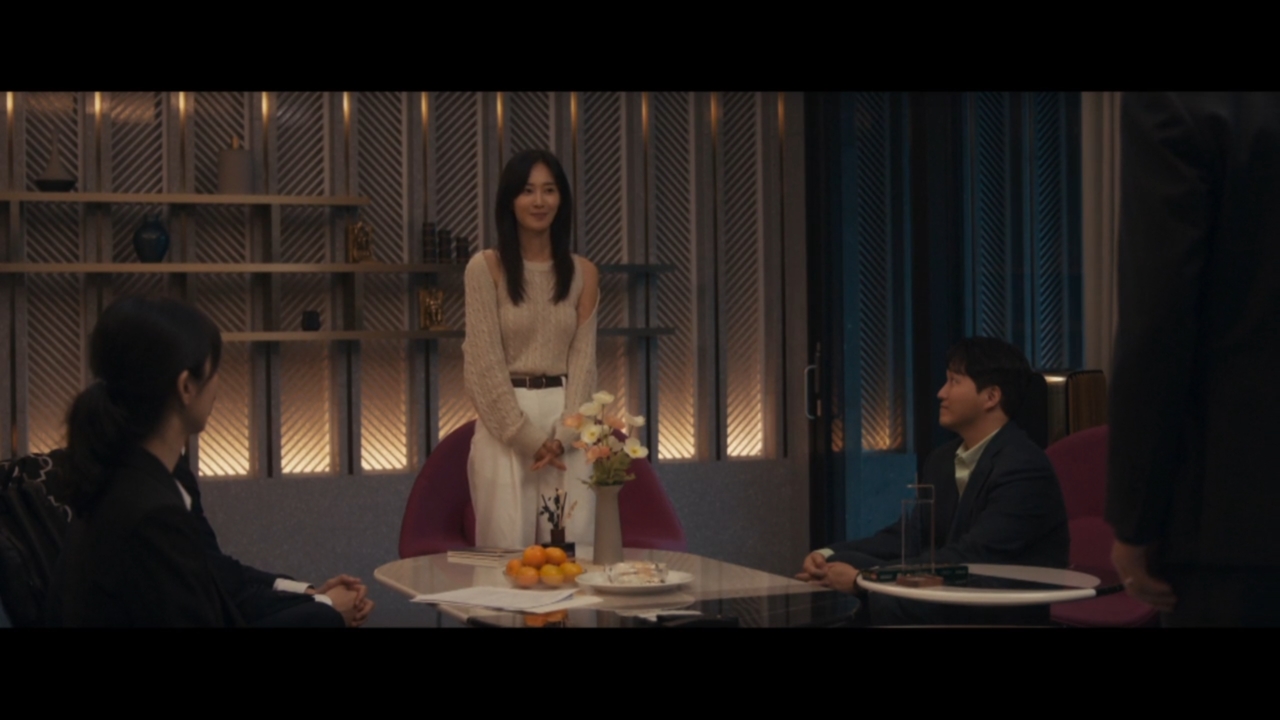
Meanwhile in Jeju…
Back at the resort, the M&A team isn’t exactly blending in. Staff spot familiar Sanin faces wandering around DADO and quickly alert Jae-sik’s secretary. The secret’s out.
Still, the team pushes forward. Joo-no meets with the CEO of a neighboring luxury hotel—someone who once tried to buy DADO, only to be turned down by Ji-o. This time, a deal’s on the table: ₩60 billion, pending an official Memorandum of Understanding from Sanin.
Then It Blows Up
Just as the team prepares to pitch the plan to Ji-o, the hammer drops. Jae-sik finds out about their quiet mission in Jeju. Furious, he demands the entire team return to Seoul and submit their resignations.
On the other front, Tae-su seals a revised deal with SAMOEL—lower interest, but at a cost: double the stock collateral. It’s a high-risk move that raises eyebrows.
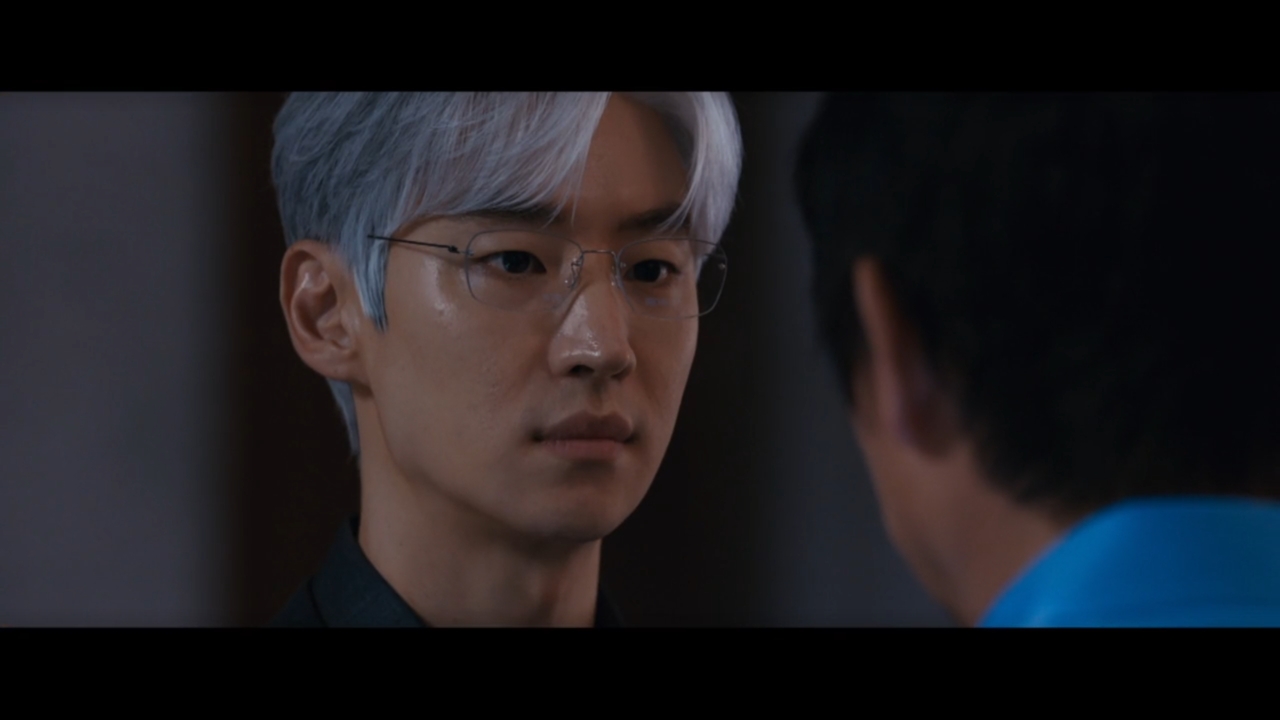
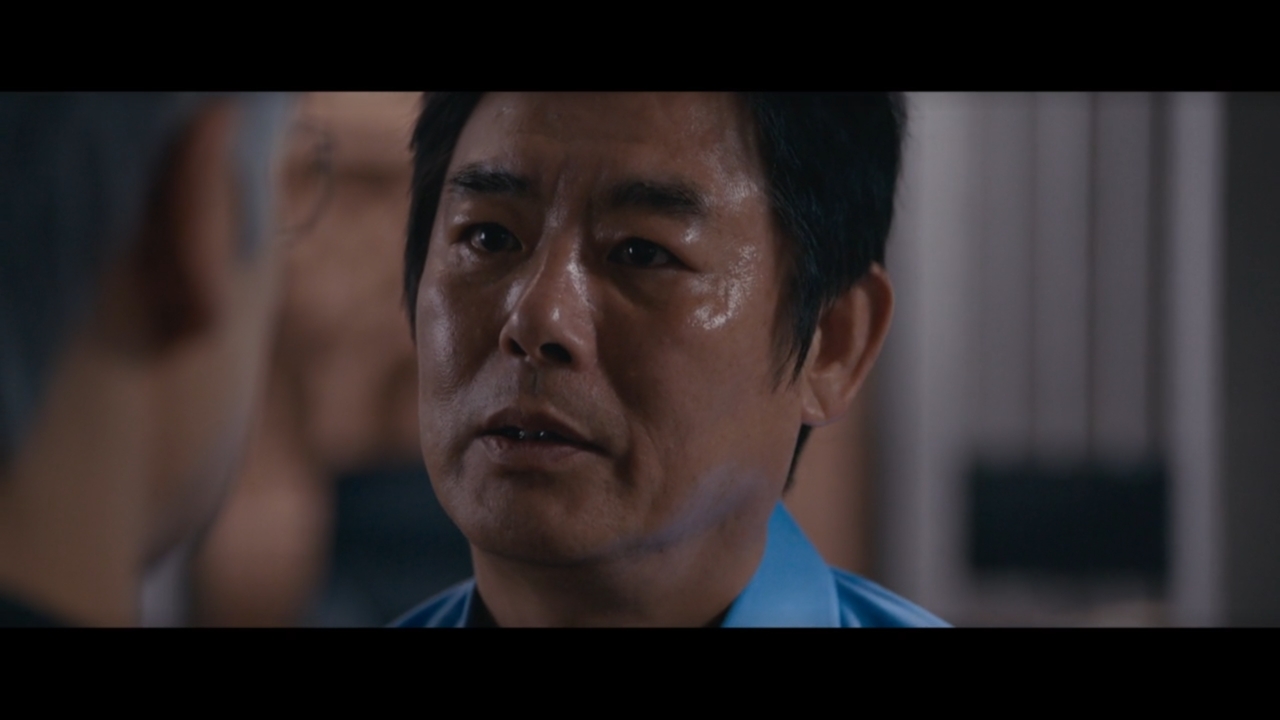
A Personal Reveal
At the resort, Ji-o overhears Min-jung talking about losing her job. She tries to reach out, but Min-jung doesn’t hold back. She calls out Ji-o’s privilege, reminding her that real people’s livelihoods are on the line.
The next day, just as the team is packing up to leave, Ji-o surprises everyone. She asks for a proposal—not on how to sell the resort, but how to improve it. Her one condition? No profit-driven changes. She wants the resort to make people happy. If it comes to it, she’s willing to sell—but only on her terms.
Then the truth drops. Ji-o opens up to Joo-no: she has cancer, again. She beat it once. This time, surgery offers only a 50% chance. She doesn’t want to sell the place that’s become her sanctuary—she wants to spend what time she has left there.

Back to Seoul
The team returns. Joo-no submits his resignation. Tae-su updates Jae-sik on SAMOEL’s new loan terms. Tensions are high—until the phone rings.
It’s Ji-o.
She’s decided to sell the resort and go through with the surgery.
But that’s not all. Joo-no’s team left behind a revised contract. It includes a special clause: Ji-o gets to keep her room at the resort, free of charge, for as long as she lives. In return, Sanin secures a long-term promotional partnership with the hotel.
It’s a rare moment of heart in a world usually ruled by cold numbers. And it moves Jae-sik enough to make a big decision:
He offers Joo-no a seat on the board.
DramaZen's Opinion
Corporate Drama with Real Heart

Episodes 7 and 8 of The Art of Negotiation strike a perfect balance between cold strategy and raw emotion. Just when you think it's all boardroom warfare, the show throws in personal stakes that hit hard.
Episode 7 deepens the intrigue with Jae-sik’s secret resort investment and the slow reveal of his daughter Ji-o, whose presence adds a new emotional layer. The Jeju setting softens the tension, but the stakes remain high—and Ji-o’s refusal to sell the resort sets the tone for something deeper than just numbers.
Then Episode 8 hits with the twist: Ji-o’s illness. It’s a gut punch that reshapes everything. What looked like a financial misstep becomes a story of legacy, mortality, and control. Watching the M&A team navigate not just a deal, but a life, shows just how layered this drama is. And that final clause in the contract—securing Ji-o’s room for life—was subtle, powerful, and earned.
Verdict: ⭐⭐⭐⭐⭐
Smart, heartfelt, and unexpectedly moving. The Art of Negotiation isn’t just about power—it’s about people.



![[Breaking] Actress Kim Sae Ron Passes Away at 24—Fans Mourn the Tragic Loss](/static/gallery/Screenshot_2025-02-16_at_8.29.45_AM.png)

